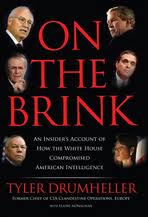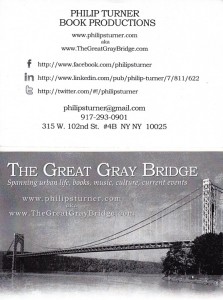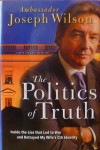This post has been updated. New material in bold.
For more than a week I’ve been following coverage of the forthcoming book, No Easy Day, by the pseudonymous Mark Owen and a co-author, supposedly detailing the undercover mission Owen was part of that led to the death of Osama Bin Laden. While it seems that Penguin is going ahead with publication Sept. 4–and news organizations have been reporting on the book’s contents, after purchasing copies ahead of the official on-sale date–I am pretty much flabbergasted that editors and executives at Dutton, the Penguin division bringing out the book, evidently allowed the book to go to press even though the author had failed to submit the manuscript for the vetting required under his non-disclosure agreements with the military.
Reporter Husna Haq writes in the Christian Science Monitor, “According to the terms of Bissonnette’s non-disclosure agreements, he would have to submit any manuscript for pre-publication review and obtain permission before publishing it. . . . The book was not vetted by government agencies prior to publication. Disclosure of classified information is a crime and the US government may be entitled to all ‘royalties, remunerations, and emoluments’ from [the author]’s disclosures, the [Pentagon] letter warned.” To be clear, the Pentagon’s letter was addressed to the author, and not to his publisher. He stands to lose the most from all this, but if the Pentagon does rule in the next week that the book’s disclosures go beyond what he was entitled to reveal, and that they’re harmful to national security, Penguin will be under some pressure to cease distribution of the book. If they defy the government after that, they run some risk too, at least to their reputation, and maybe financially, as well.*
Eli Lake in the Daily Beast/Newsweek reports that a “spokeswoman for . . . Dutton, said the book was vetted by a former special-operations attorney provided to the publishing house by the author. It was not, however, reviewed by the military, according to Pentagon spokesmen.”
This is really lame. So staff at Dutton decided to just accept the author’s representation that everything with the ms. was okay because he had shown it to an attorney of his own choosing who gave it a pass? If that is what happened, and multiple news accounts indicate it did, this was truly amateurish.
In my years editing and publishing topical nonfiction, I had a number of sensitive books that required careful handling with government agencies. One of them was On the Brink: An Insider’s Account of How the White House Compromised American Intelligence by Tyler Drumheller, former chief of CIA clandestine operations, Europe. Well in advance of publication in 2006, the author submitted the ms. to the agency’s Publications Review Board. After they read it, a two-way communication ensued and we edited the final ms. to accomodate their concerns. We didn’t necessarily like that this was necessary, but that was really beside the point. It had to be done, and it was. I should add, however, that even though the book was by implication and inference critical of the Bush administration, none of the edits requested had anything to do with political sensitivities; it was entirely about operations and maintaining security.
Let me make clear, so that there’s no doubt here. I’m not ‘siding’ with the government–I’m an editor and publisher by temperament and experience. I’m for information being shared as freely and openly as possible. But when an author has a prior legal agreement with any agency–be it governmental, corporate, or just between himself and another individual–as a publishing house you can’t just blunder forward, with some stupid ‘let the chips fall where they may’ attitude. The risks of non-compliance are too great.
Penguin/Dutton may get their big launch date this Tuesday, but they also may have sown an enormous hassle for themselves by failing to ensure that their author had had his manuscript properly vetted. I’d dare say Penguin has enough troubles with the Department of Justice right now, in the ebook agency pricing lawsuit, they didn’t need this one too.
* H/t Mike Shatzkin who suggested a helpful revision to this paragraph, clarifying that it’s the author who has the most exposure to the Pentagon’s claims. I had an email exchange with another publishing friend, who, feeling waggish, said maybe Dutton and Penguin planned all this, to get the book maximum publicity. Friends on Facebook, where I shared the first version of this piece have said the same thing. But I can’t conceive this is correct, though that may show my own risk-aversion and lack of imagination. I think the editing and publishing broke down and shows incompetence. Weirdly, publicity and sales of the book may even be fueled by the controversy, at least for a while, but if this has been a deliberate strategy, it seems a crazy, high-risk way of going about it all.
* H/t Mike Shatzkin who suggested a helpful revision to this paragraph, clarifying that it’s the author who has the most exposure to the Pentagon’s claims. I had an email exchange with another publishing friend, who, feeling waggish, said maybe Dutton and Penguin planned all this, to get the book maximum publicity. Friends on Facebook, where I shared the first version of this piece have said the same thing. But I can’t conceive this is correct, though that may show my own risk-aversion and lack of imagination. I think the editing and publishing broke down and shows incompetence. Weirdly, publicity and sales of the book may even be fueled by the controversy, at least for a while, but if this has been a deliberate strategy, it seems a crazy, high-risk way of going about it all.







